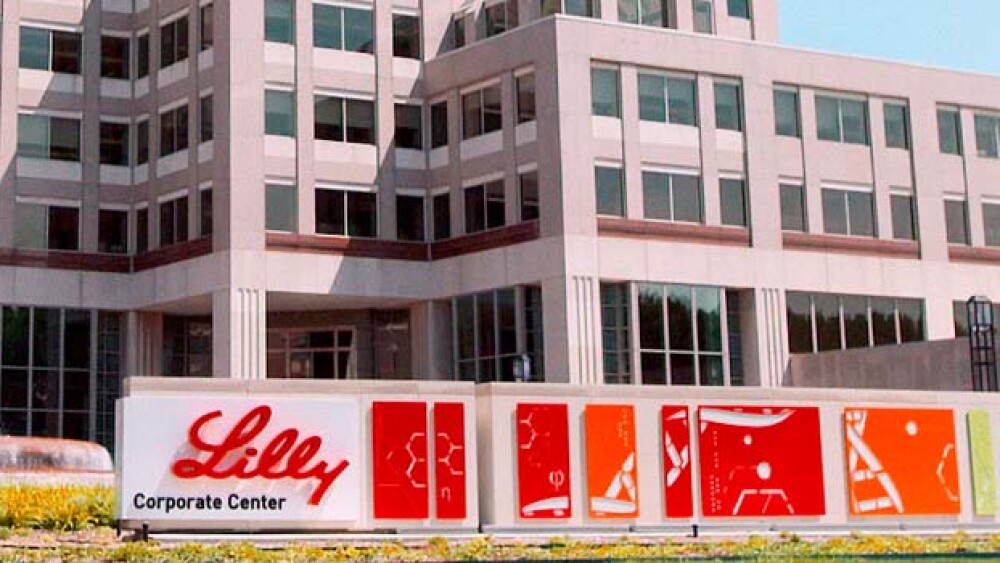Lilly finally revealed the data in the New England Journal of Medicine.
Has the amyloid plaque question in Alzheimer’s research been put to rest? Eli Lilly’s recent data analysis of its failed Phase III Alzheimer’s disease treatment solanezumab would suggest so.
In an article in the New England Journal of Medicine, Eli Lilly said solanezumab did not significantly slow cognitive decline in in Alzheimer’s patients. In 2016, Lilly reported the failure of solanezumab. But the company maintained hope that sola could be salvaged as a treatment for patients in the earliest stages of Alzheimer’s disease. Company researchers believed solanezumab would be effective at targeting amyloid- beta plaque and stop or at least significantly slow progression of the disease. But now that appears to be a dead end.
In the NEJM article, Lilly said it failed to reach significance in determining if solanezumab was effective. The company said it enrolled 2,129 patients and provided 1,057 with solanezumab and the remaining 1,072 patients received a placebo. Lilly reported that the mean change from baseline in the ADAS-cog14 score was 6.65 in the solanezumab group and 7.44 in the placebo group, with no significant between-group difference at week 80.
“Solanezumab at a dose of 400 mg administered every 4 weeks in patients with mild Alzheimer’s disease did not significantly affect cognitive decline,” Lilly said in the article abstract.
Writing in Forbes, Arlene Weintraub said Lilly’s information will be “sure to disappoint researchers who have been hanging onto the ‘amyloid hypothesis’ of Alzheimer’s.” Citing Michael Murphy, a professor at the University of Kentucky’s Sanders-Brown Center on Aging Weintraub said Lilly’s failure should “raise questions” about the hypothesis.
“Some success in preclinical studies evolved into this idea that what we need to do is remove the soluble form of the [amyloid-beta] peptide from the brain. But all [human] trials ended up being disappointing—they didn’t really work,” Murphy told Weintraub.
Murphy didn’t close the door completely on whether or not the hypothesis was dead and noted that some continued studies, including Biogen’s aducanumab, should be watched closely. Biogen seems confident in the drug. In October, the Boston-based company announced it had increased its profit potential on the drug by forking over an additional $150 million to Neurimmune Holding AG, the company from which Biogen licensed the drug. That would reduce any future royalty payments Biogen would have to make should the AD drug prove marketable. Biogen released early data from its Phase Ib clinical trial of aducanumab, which revealed that patients receiving the drug showed a drop in Alzheimer’s-related beta-amyloid plaque in the brain, as well as continued to show a slowing of cognitive declines.
Lilly also continues to see promise in the amyloid hypothesis. In an email to Weintraub, Lilly confirmed its commitment to developing a treatment for Alzheimer’s disease, which includes programs that target both amyloid-beta and tau tangles.
“Because we now know that amyloid builds up in the brain 15-20 years before symptoms, the broader scientific community has hypothesized that Alzheimer’s may need to be targeted earlier in the disease progression. With the technology of new advanced diagnostics, many of the current studies target patients much earlier than ever before,” Lilly said in its email.
Eli Lilly remains committed to developing a treatment for Alzheimer’s disease and has eight different experimental drugs in its pipeline, including lanabecestat, a BACE drug it licensed from AstraZeneca, as well as the failed sola. Lilly has a Phase I and Phase II BACE program.
Alzheimer’s and other forms of dementia are a growing healthcare concern. In the United States, Alzheimer’s disease is the sixth-leading cause of death across all ages and the fifth-leading cause of death in people over 65 years of age. By 2050, the number of global patients is expected to hit 131.5 million.





